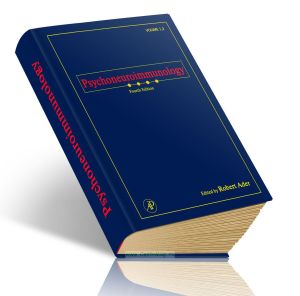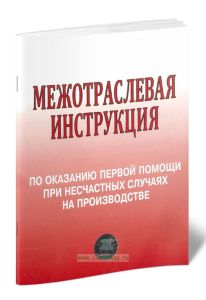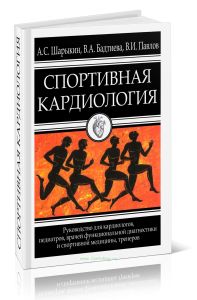- Артикул:00-01099333
- Автор: ed. R. Ader
- ISBN: 978-0120885763
- Обложка: Твердая обложка
- Издательство: Elsevier Science (все книги издательства)
- Город: Oxford
- Страниц: 1293
- Год: 2007
- Вес: 3396 г
Psychoneuroimmunology. Volume I,II
Книга на английском языке.
Psychoneuroimmimology is a convergence of disciplines—namely, the behavioral sciences, the neurosciences, endocrinology, and immunology—intended to achieve a more complete understanding of the way the interactions among these systems serve homeostatic ends and influence health and disease. As I have previously remarked, psychoneuroimmunology is an interdisciplinary field that has developed and now prospers by exploring and tilling fertile territories secreted by the arbitrary and illusory boundaries of the biomedical sciences. Disciplinary boundaries, codified by bureaucracies, are historical fictions that can restrict the imagination and impede the transfer and application of technologies and lend credence to Werner Heisenberg's assertion that "What we observe is not nature itself, but nature exposed to our method of questioning." Today, still, the business of science, by which I mean the training of scientists, the formulation of questions and hypotheses, the implementation of research, the communication among scientists, and even the funding of research, takes place within disciplinary boundaries that represent the disassembled parts of natural phenomena. This is not a representation of nature. It is an expedience that reflects our own intellectual limitations.
National Institutes of Health (NIH) will implement several initiatives designed to facilitate interdisciplinary research collaborations and research training and, ultimately, lead to the development of new hybrid disciplines that will provide a more complete understanding of psychological, social and biological interactions in health and disease. Psychoneuroimmunology is one such hybrid discipline that should prosper under these NIH initiatives. This is the temporal context in which I proposed a fourth edition of Psychoneuroimmunology.
Like previous editions, Psychoneuroimmunology-lV is addressed to a broad audience in a continuing effort to draw attention to the field and promote interdisciplinary research in the laboratory and in the clinic. The primary targets would be laboratory and clinical investigators in endocrinology, immunology, neurochemistry, neurophysiology, pharmacology, psychiatry, psychology, virology, and medical specialists in allergic and infectious diseases, oncology, rheumatology, etc.
Contents
Volume I
Contributors
Preface to the Fourth Edition
About the Editors x
Prologue
Exploring the Phylogenetic History of Neural-immune System Interactions: An Update. Nicholas Cohen and Kevin S. Kinney
I. Neural and Endocrine Effects on Immunity
I. Overview. C. J. Heijnen
1. Glucocorticoids and Immunity: Mechanisms of Regulation. Onard J. L. M. Schoneveld and John A. Cidlowski
2. Adrenergic Regulation of Immunity. Virginia M. Sanders and Annemieke Kavelaars
3. Cholinergic Regulation of Inflammation. Christopher J. Czura, Mauricio Rosas-Ballina, and Kevin J. Tracey
4. Significance of Sensory Neuropeptides and the Immune Response. Hanneke P. M. van der Kleij and John Bienenstock
5. Vasoactive Intestinal Peptide: An Anti-inflammatory Neuropeptide. Doina Ganea and Mario Delgado
6. Immune-derived Opioids: Production and Function in Inflammatory Pain. Halina Machelska and Christoph Stein
7. Crosstalk between Insulin-like Growth Factors and Pro-inflammatory Cytokines. Robert H. McCusker, Klemen Strle, Suzanne R. Broussard, Robert Dantzer, Rose Marie Bluthe, and Keith W. Kelley
8. The Neuroendocrine System and Rheumatoid Arthritis: Focus on the Hypothalamic-Pituitary-Adrenal Axis. Heather E. Gorby and Esther M. Sternberg
9. Sex Steroids and Immunity. Maurizio Cutolo and Alessandro Calvia
10. Emerging Concepts for the Pathogenesis of Chronic Disabling Inflammatory Diseases: Neuroendocrine-immune Interactions and Evolutionary Biology. Rainer H. Straub, Adriana del Rey, and Hugo O. Besedovsky
11. Neuroendocrine Regulation of Cancer Progression: I. Biological Mechanisms and Clinical Relevance. Anil K. Sood, Susan K. Lutgendorf, and Steve Cole
12. Neuroendocrine Regulation of Cancer Progression: II. Immunological Mechanisms, Clinical Relevance, and Prophylactic Measures. Roi Avraham and Shamgar Ben-Eliyahu
II. Immune System Effects on Neural and Endocrine Processes and Behavior. Robert Dantzer
II. Overview. Robert Dantzer
13. Expression and Action of Cytokines in the Brain: Mechanisms and Pathophysiological Implications. Robert Dantzer
14. Cytokines, Sickness Behavior, and Depression. Robert Dantzer, Rose-Marie Bluthe, Nathalie Castanon, Keith W. Kelley, Jan-Pieter Konsman, Sophie Laye, Jacques Lestage, and Patricia Parnet
15. The Differential Role of Prostaglandin E2 Receptors in the CNS Response to Systemic Immune Challenge. Michael Lazarus and Clifford B. Saper
16. The Role of Pro-inflammatory Cytokines in Memory Processes and Neural Plasticity Inbal Goshen and Raz Yirmiya
17. Aging, Neuroinflammation, and Behavior Rodney W. Johnson and Jonathan P. Godbout
18. Neuroimmune Interactions and Pain: The Role of Immune and Glial Cells. Linda R. Watkins, Julie Wieseler-Frank, Mark R. Hutchinson, Annemarie Ledeboer, Leah Spataro, Erin D. Milligan, Evan M. Sloane, and Steven F. Maier
19. Cytokines and Non-immune Brain Injury. Barry W. McColl, Chris J. Stock, and Nancy J. Rothwell
20. The Interaction between Brain Inflammation and Systemic Infection. Leigh M. Felton and V. Hugh Perry
III. Behavior and Immunity. Michael R. Irwin
III. Overview. Michael Irwin
21. Mother-infant Interactions and the Development of Immunity from Conception through Weaning. Christopher L. Coe and Gabriele R. Lubach
22. Social Dominance and Immunity in Animals. Mark L. Laudenslager and Sarah Kennedy
23. Social Context as an Individual Difference in Psychoneuroimmunology. Edith Chen and Gregory E. Miller
24. Psychoneuroimmunology of Depressive Disorder: Mechanisms and Clinical Implications. Lucile Capuron, Andrew Miller, and Michael R. Irwin
25. Immune and Neuroendocrine Alterations in Post-traumatic Stress Disorder. Gail Ironson, Dean Cruess, and Mahendra Kumar
26. Psychoneuroimmunologic Aspects of Alcohol and Substance Abuse. Steven J. Schleifer
27. Schizophrenia and Immunity. Matthias Rothermundt and Volker Arolt
28. Sleep and the Immune System. Mark R. Opp, Jan Born, and Michael R. Irwin
29. Emotions and the Immune System. Margaret E. Kemeny
30. Behaviorally Conditioned Enhancement of Immune Responses. Gustavo Pacheco-Lopez, Maj-Britt Niemi, Harald Engler, and Manfred Schedlowski
31. Exercise and Immunity: Clinical Studies. David C. Nieman
32. Behavioral Interventions: Immunologic. Mediators and Disease Outcomes. Michael H. Antoni, Neil Schneiderman, and Frank Penedo
Volume II
Contributors
Preface to the Fourth Edition
About the Editors
IV. Stress and Immunity. Ronald Glaser
IV. Overview. Ronald Glaser
33. Stress: A System of the Whole. Bruce Rabin
34. Bi-directional Effects of Stress on Immune Function: Possible Explanations for Salubrious as Well as Harmful Effects. Firdaus S. Dhabhar and Bruce S. McEwen
35. Positive Affect and Immune Function. Anna L. Marsland, Sarah Pressman, and Sheldon Cohen
36. Close Relationships and Immunity. Jennifer E. Graham, Lisa M. Christian, and Janice K. Kiecolt-Glaser
37. Stress and Allergic Diseases. Gailen D. Marshall and Sitesh R. Roy
38. Stress, Neuroendocrine Hormones, and Wound Healing: Human Models. Phillip T. Marucha and Christopher G. Engeland
39. Stress and Wound Healing: Animal Models. David A. Padgett, Phillip T. Marucha, and John F. Sheridan
40. Reactivation of Latent Herpes Viruses in Astronauts. Duane L. Pierson, Satish K. Mehta, and Raymond P. Stowe
41. Psychosocial Influences in Oncology: An Expanded Model of Biobehavioral Mechanisms. Susan K. Lutgendorf, Erin S. Costanzo, and Scott D. Siegel
42. Stress-associated Immune Dysregulation Can Affect Antibody and T-cell Responses to Vaccines. Mark A. Wetherell and Kavita Vedhara
V. Psychoneuroimmunology and Pathophysiology John Sheridan and David Padgett
V. Overview. John Sheridan and David Padgett
43. Psychoneuroimmunological Pathways Involved in Acute Coronary Syndromes Willem J. Kop and Nicholas Cohen
44. Psychosocial Factors and Coronary Heart Disease: The Role of Psychoneuroimmunological Processes. Andrew Steptoe and Lena Brydon
45. Endocrine and Immune Responses to Stress in Chronic Inflammatory Skin Disorder (Atopic Dermatitis). A. Buske-Kirschbaum
46. Obesity and Immunity. Christopher B. Guest, Yan Gao, Jason C. O'Connor, and Gregory G. Freund
47. Endogenous Extracellular Hsp72 Release Is an Adaptive Feature of the Acute Stress. Response Monika Fleshner, Craig M. Sharkey, Molly Nickerson, and John D. Johnson
48. Cold-Restraint-induced Immune and Biochemical Changes Inhibit Host Resistance to Listeria. Rebecca T. Emeny and David A. Lawrence
49. Psychobiology of HIV Infection. Erica Sloan, Alicia Collado-Hidalgo, and Steve Cole
50. Stress-induced Modulation of the Immune Response to Herpes Simplex Virus. Infections. Robert H. Bonneau and John T. Hunzeker
51. Stress-induced Modulation of Innate Resistance and Adaptive Immunity to Influenza Viral Infection. Michael T. Bailey, David A. Padgett, and John F. Sheridan
52. Social Stress Alters the Severity of a Virally Initiated Model of Multiple Sclerosis. Mary W. Meagher, Robin Johnson, Elisabeth Good, and C. Jane Welsh
Author Index
Subject Index
Рекомендуем
Артикул 00201929




